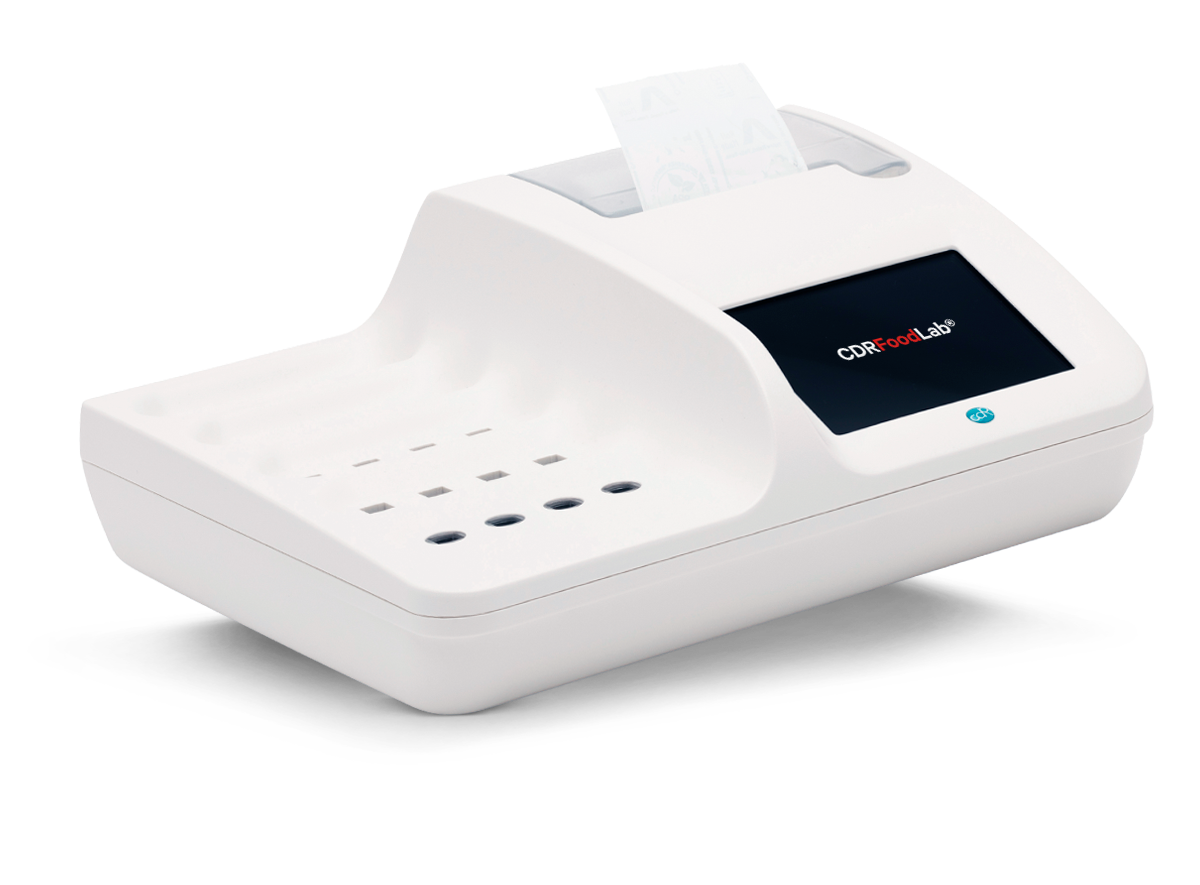Alkaline Phosphatase (ALP) Determination in cow milk
The alkaline phosphatase (ALP) is an enzyme normally present in raw milk and it is inactivated in conditions of heat treatment. The temperature of inactivation of ALP is slightly higher than that required for the destruction of pathogenic bacteria. So the ALP test in pasteurized milk is used to verify if the heating process of pasteurization is done correctly.
Features and Benefits of CDR FoodLab®
With CDR FoodLab®, you can determine alkaline phosphatase (ALP) in cow's milk without sample preparation. Peroxidase and ε-Fructosyllysine (Furosine) can also be quickly and easily assessed, completing the panel of determinations for monitoring milk heat treatment.
Method
Test type: End Point.
Testing time: 25 minutes.
Analysis sessions with multiple samples are possible up to a maximum of 16 tests for CDR FoodLab® and 3 tests for CDR FoodLab® Junior.
...
Sample treatment
Use pasteurized cow milk as is.
Principle of the test
Alkaline phosphatase induces the hydrolysis of p-nitrophenyl phosphate in an alkaline solution, and forms a yellow colored complex whose intensity, measured at 420 nm, is directly proportional to the concentration of ALP in the sample.
...
Calibration curve
The calibration curve was performed using various additions of raw milk in pasteurized milk. The values reported are correlated with those reported in the literature (“ALP testing for milk Pasteurization” Cornell University – Dairy science facts 1998).
...
Reagent test Kits
Measuring range
| Analyses | Measuring range | Resolution | Repeatability |
|---|---|---|---|
| ALP | 0.1 - 7 U/L | 0.01 U/L | 0.12 U/L |
Analyzers for quality control of milk and dairy products
CDR FoodLab®
Complete analysis panel, supplied already configured
Up to 16 determinations simultaneously
Possibility of carrying out analyses of the same sample
Integrated printer
Full connections (LAN - USB - Bluetooth barcode/QR code reader)
CDR FoodLab® Jr
Partial analysis panel, customisable configuration
Up to 3 determinations simultaneously
Wireless connection to external printer
USB connections
